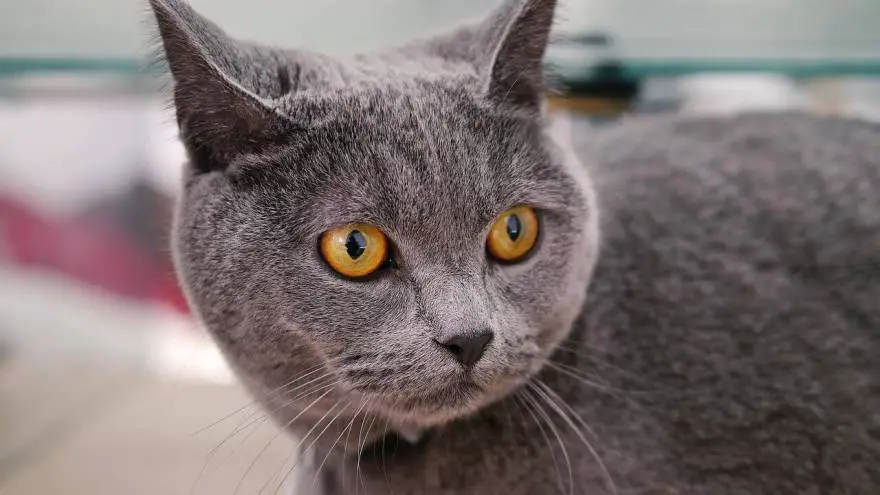Hip Dysplasia In Cats - Symptoms, Treatment & Prevention
29.08.2022.
Many of us instantly think about the dog when we mention hip dysplasia. But the truth is cats are also in danger of developing hip dysplasia, although they are much better at hiding that they are in pain. Hip dysplasia in cats commonly occurs in large cat breeds such as Maine Coon. However, hip dysplasia can occur in any cat regarding their appearance.
What is hip dysplasia?
Hip dysplasia is an orthopedic problem that affects cats. This will happen because of the abnormal development of hip joints (one or both), and this will cause degeneration of the joint. There have been many reports that cats who developed hip dysplasia also developed osteoarthritis later in their life.
These conditions are painful for cats, and you will have to provide her with proper care to remove pain from her life. Hip dysplasia will, in most cases, result from genetics.
Symptoms of hip dysplasia in cats
As a cat owner, you are responsible for taking care of your cat and noticing when something is wrong. To notice hip dysplasia early, you will have to find symptoms related to this problem.
The most common symptoms of hip dysplasia in cats include the following:
- Strange walking – avoiding using affected legs
- Limping
- Avoiding any physical activities
- Lethargy
- Problems with jumping
- Loss of rear muscles
- Difficulty getting up
- Difficulty moving

Cats are known to be good at hiding problems and pain, and some cats may never show any symptoms of hip dysplasia. Regularly going to the vet will ensure that your cat will be healthy. Your vet will examine the cat and notice if something is bothering her.
Diagnosis
Besides mentioned symptoms that show something is up with your cat, your vet will perform a physical exam. X-rays are most commonly used to confirm hip dysplasia.
Causes of hip dysplasia in cats
In most cases, cats will develop hip dysplasia because of their genetics, and you cannot do anything about that. There are some other cases where your cat is in danger of developing hip dysplasia, and they include:
- Injury – cats that suffer some injury like a car accident can easily develop hip dysplasia
- Obesity – overweighted cats can easily develop hip dysplasia since their weight will put more pressure on the hips, eventually leading to dysplasia.
Treatment
Most cats that develop mild hip dysplasia will not need surgery, and you can provide your cat with proper care to reduce the discomfort. Here is what you can do to provide comfort for your cat:
- Keep your cat at a healthy weight (don’t allow her to become overweight)
- Provide her with regular exercise
- You can give her joint supplements
- Pain meds

Collaborating with your vet will find the best and correct way to treat your cat. If nothing above seems to work, surgery may be needed for your cat.
For the more severe cases of hip dysplasia, surgery will be needed. Because of their tiny bones, hip replacement is rarely an option, and in most cases, your vet will simply remove the femoral head. Your cat will rebuild false joints and lead a happy and painless life.
Prognosis
The prognosis will mostly depend on when the dysplasia is detected. If you detect it early, your cat has a good chance of recovery. Your vet can prescribe her medication and physical therapy. In cases of severe condition, your cat may be required to undergo surgery.
The faster you notice this condition, the better are the chances for your cat to recover.
Prevention
Generally speaking, there isn’t exact advice we can give you that will completely prevent hip dysplasia from developing. However, you can do a few things to gradually decrease the chances of this happening.
- Keep your cat happy and healthy
- Prevent your cat from jumping until the adult age
- Feed your cat with balanced cat food, and don’t allow your cat to become overweight
- Ensure regular exercise for your cat
- Regularly take your cat to the vet for examination

Conclusion
Hip dysplasia in cats is not as common as in dogs, but it can still affect your cat. The best thing you can do for your cat is to notice early symptoms and take your cat to the vet for examination. If you catch this condition in the early stages, you will ensure that your cat will not be in pain. To prevent this from happening, feed your cat with well-balanced cat food, regularly provide her with activities, and schedule a regular appointment with your vet.
World Cat Finder Team







Share